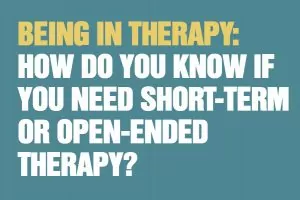There are a lot of myths and misunderstandings around self-harm. This is perhaps understandable because self-harm or self-injury are so seldom discussed openly and there are a lot of negative stereotypes around these behaviours. But March the First is Self-Injury Awareness Day, which is a day to challenge the myths so that people feel better able to talk about the issues and ask for help.
Myth 1. Self-harm is a cry for attention
One of the most common stereotypes about self-harm is that it is ‘attention seeking’ but this is not the case and, in fact, most incidents of self-harm are not reported and most people who self-harm go through it alone for months, even years, before they feel able to talk to anyone about it or ask for help.
Myth 2. Self-harm is a partial or trial suicide attempt
People often make a link between self-harm and suicide, but they are quite separate behaviours. Most people who self-harm do it to help them to cope with overwhelming feelings or thoughts and it should be taken seriously whatever the reason behind it. They would describe it as a way of coping with life and staying alive.
Myth 3. Self-harm is a youth subculture thing
It is true that it feels as though self-harming behaviour arrived with modern times and is the preserve of young people — particularly those who identify as ‘goth’ or ‘emo’ — but research shows it occurs in children as young as four and can manifest itself in those in their 60s. So it can happen to anyone at any stage of their lives. Having said that, most of the research on self-harm has been conducted with young people and the most recent stats show that self-harm affects 13% of under-25s but that there is no evidence that it is part of any particular genre or subculture.
Myth 4. Self-harm is a form of masochism
Some people believe that when people self-harm they take pleasure in the pain or risk. This is not the case. Everybody – whether you self-harm or not – has a different pain threshold. Some people can endure the most extraordinary levels of pain, while others may have a hypersensitivity to even the slightest injury or ache. When someone has the urge to harm themself, they may feel as though they are numb and not able to feel pain; this is because of the emotional intensity they are experiencing in that moment. In most cases, the pain of the self-harm replaces emotional pain.
The most important things to know about self-harm are:
- It is possible to live without it.
- You won’t always feel the way you do now.
- With the right help and support most people recover.
Why does it happen?
Self-harm is normally part of a cycle and most commonly starts as a way of relieving the pressure of distressing thoughts and feelings that have built up to what feels like an intolerable level. The self-harm gives temporary relief from the emotional pain, but the relief is fleeting and does not address the underlying reasons for the build-up of emotional pain. And then, once the relief has faded, feelings of guilt and shame can come in which set off the cycle again.
What to do if you self-harm:
- Recognise the triggers. For many people there are certain situations (a break-up for example), times (usually night) or behaviours (such as taking drugs or drinking) that make the cycle of self-harm more likely. It is important to learn to recognise these.
- Inform yourself about first aid. If you self-harm, it is important that you know how to look after your injuries and that you have a stock of the particular first aid equipment you need.
- Talk to someone you trust. Most impulses to self-harm come with a strong urge for privacy and secrecy around them, which is why it is so important that you are able to talk to someone about it whether that is a friend, a family, member, a GP or other medical professional.
If you feel you need to talk to a qualified professional in a safe, non-judgmental environment, call 020 8673 4545 or email [email protected] and the Front of House team will book an appointment with one of our therapists. We have centres in Clapham and Tooting.







